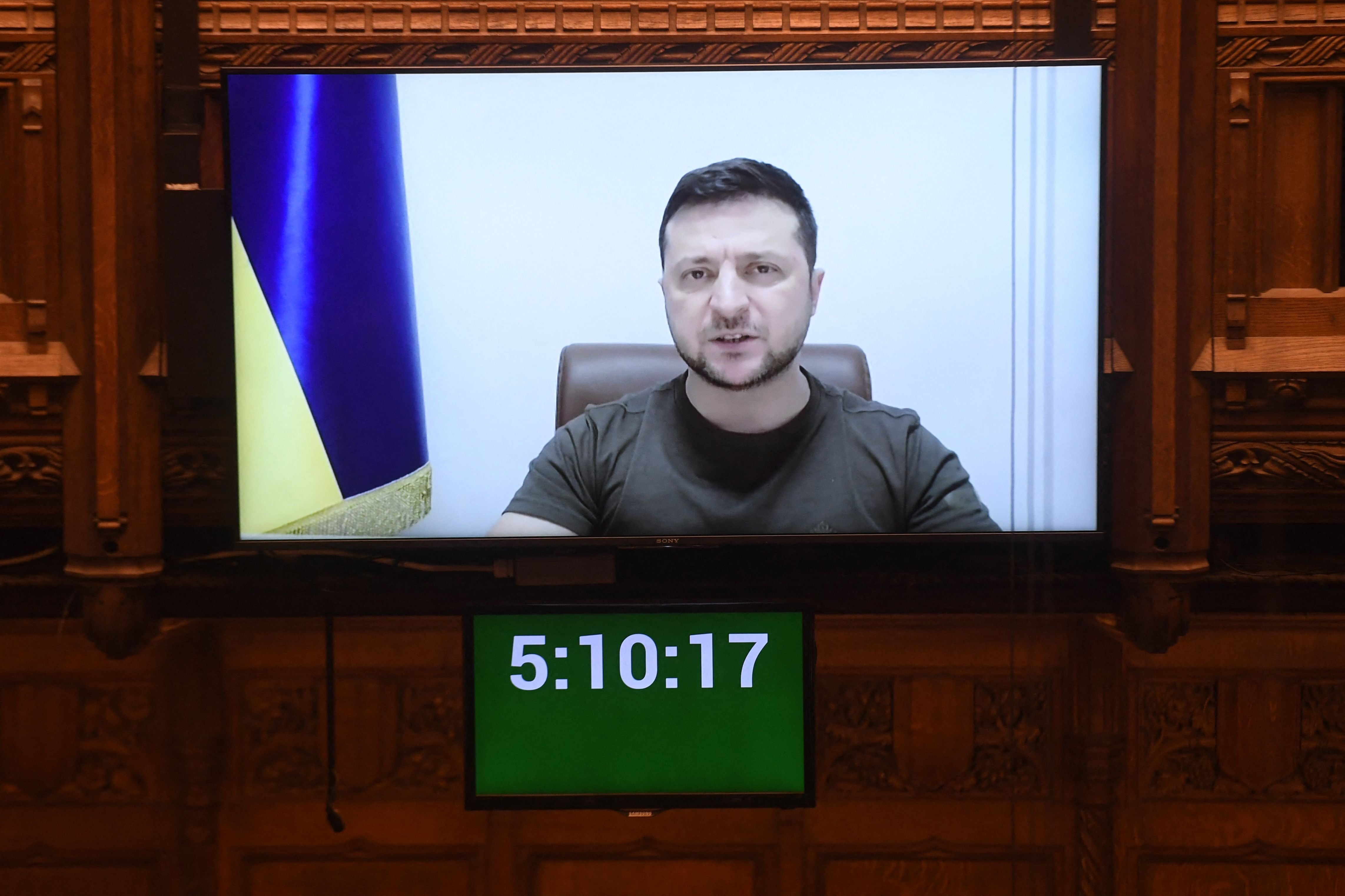Zelensky channelled Churchill in the Commons – while MPs looked like they’d been jabbed with a cattle prod
The Ukrainian president recounted the suffering of his people on a chronological basis, counting up the dead as he did so


Your support helps us to tell the story
From reproductive rights to climate change to Big Tech, The Independent is on the ground when the story is developing. Whether it's investigating the financials of Elon Musk's pro-Trump PAC or producing our latest documentary, 'The A Word', which shines a light on the American women fighting for reproductive rights, we know how important it is to parse out the facts from the messaging.
At such a critical moment in US history, we need reporters on the ground. Your donation allows us to keep sending journalists to speak to both sides of the story.
The Independent is trusted by Americans across the entire political spectrum. And unlike many other quality news outlets, we choose not to lock Americans out of our reporting and analysis with paywalls. We believe quality journalism should be available to everyone, paid for by those who can afford it.
Your support makes all the difference.The screens flickered on, and there, beneath the 19th-century chandeliers, was a man in an army T-shirt, holding a country together from a bunker while hundreds of mercenaries trawl his own city, trying to assassinate him.
It was as if the House of Commons had been jabbed with an electrified cattle prod. A surreal situation, but then, such situations are always surreal. As others have pointed out, these events are no more surreal, no more against the natural order of things, in 2022 than they were in 1914 and 1939.
It was surreal in 1940, when Churchill stood in that room and told the world that the British people would “go on to the end, whatever the cost may be”. And it is surreal in 2022, when a Ukrainian president dials in from a bunker to say the same. That his people will “fight in the forests, in the fields, on the shores, in the streets”. And people thousands of miles away sit in a kind of awed silence, clean bowled by their own admiration for the man.
In the previous minutes, they’d filed in, they’d faffed about with their headsets; a few backbenchers were leaning in to one another, sharing a set between them like 12-year-old teeny-boppers listening to the latest Bros single.
The picture was sharp, and Volodymyr Zelensky’s voice was clear. They took to their feet and applauded for a full minute. He is used to such things by now. He has already addressed the US Congress and the European parliament.
In times of great misery, the right words from the right politician carry immense importance. They steel the people for the fight to come. The people of Ukraine certainly seem to have been steeled, though few of us are actually there, and few can know the effects of Putin’s increasingly vicious attempts to break them, which will only become more degenerate.
President Zelensky knows he must also steel the world to help him. And not merely to take the easy steps, as the world has wasted no time in doing, but to do the difficult things. To do the things it doesn’t want to do. As the MPs sat listening to the address, translated live into their ears, those in the upper galleries, without headsets, could only consume the brittle terror of the occasion – of Westminster’s silent disco.
To keep up to speed with all the latest opinions and comment, sign up to our free weekly Voices Dispatches newsletter by clicking here
The president recounted the suffering of his people on a chronological basis, counting up the dead as he did so. Even those with an ear for a European language or two found little to latch on to. Until, a few minutes in, came three familiar words. “Bombe. Bombe. Bombe.”
Will he succeed? He asked, again, to “please keep Ukrainian skies safe”. He knows that the UK and the rest of Nato will not do it. But the awkward questions have not gone away. At what point will our assessment of risk change? If the west will not go to war for Ukraine, will it go to war for Estonia, as it is legally obliged to? The moral question is the same. The strategic one is hardly any different.
The Russian former chess champion and Putin critic Garry Kasparov has made the same point several times in the last two weeks, and, indeed, in the last 10 years. Ukraine is a country of 41 million people, and its harvest is crucial to global food supplies. Europe and America expect Putin to believe they will not intervene to save them, but they would for Estonia, or Lithuania.
These are questions to which there are no easy answers. They whirred inside the heads of hundreds of parliamentarians as the man from the bunker continued to list the horrors he has faced.
And then, he was gone. Amid the applause, the TV screens switched off again, showing only a little telephone handset graphic inside a circle. Five hundred MPs plonked their headsets onto their laps, puffed out their cheeks, and went back to not having a clue what to do about any of it.
Join our commenting forum
Join thought-provoking conversations, follow other Independent readers and see their replies
Comments